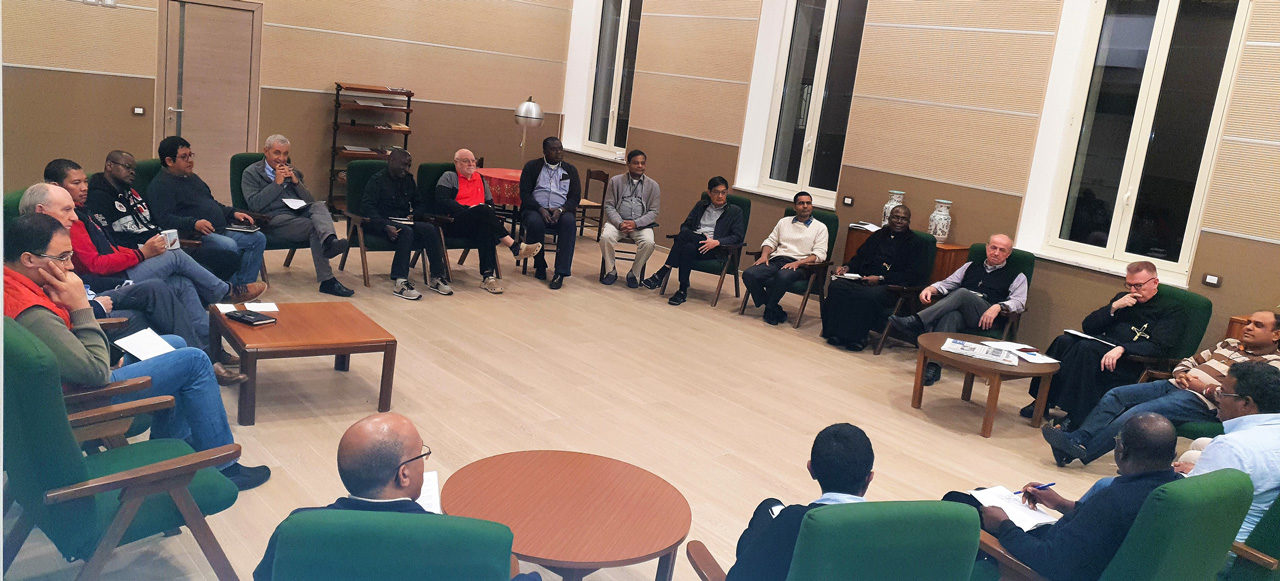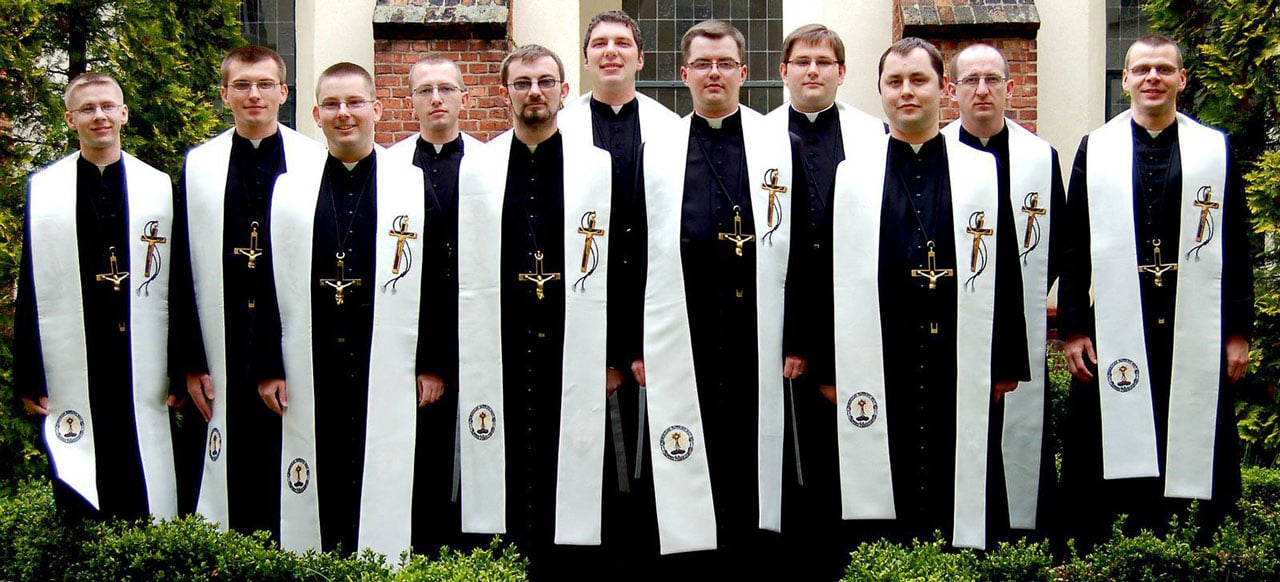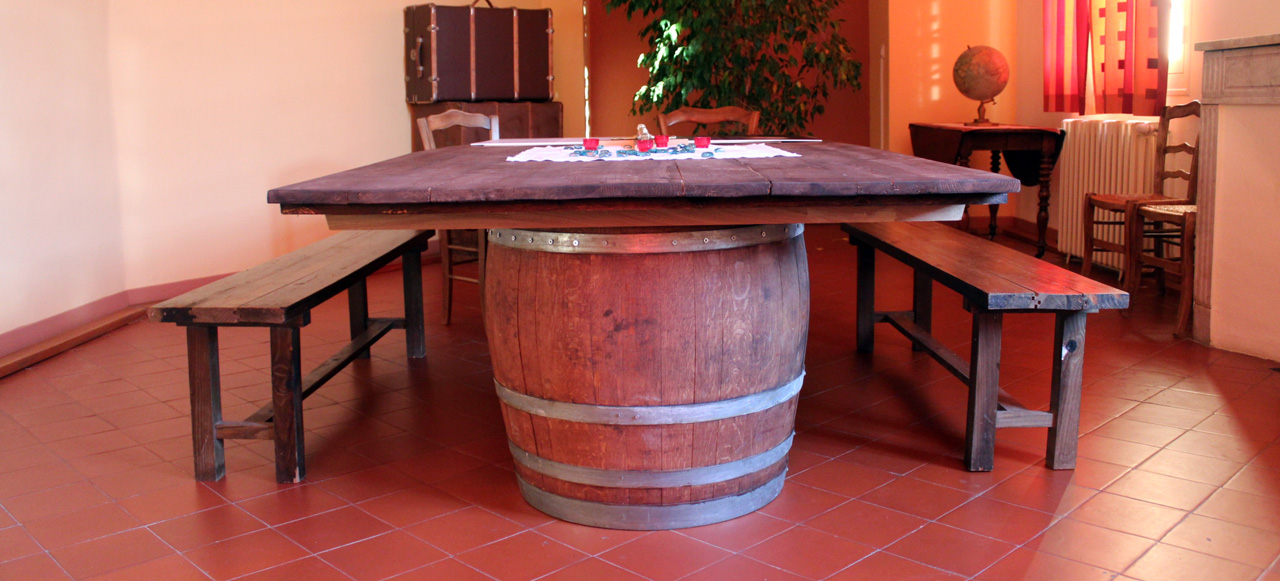Meditations to prepare for the anniversary of the first vows of November 1, 1818
Community life and apostolate: “If anyone was tempted to regard these rules as too painful for our nature, we implore him in the Lord to consider…
- that our ministry would be forever fruitless, if we did not apply ourselves earnestly to our spiritual advancement.
- that we will never reach the height of our vocation without the help of these observances which were regarded as indispensable by all the fathers of the spiritual life and especially by the holy founders of Orders;
- that the missions and retreats which, during three quarters of the year, cast us inevitably into the midst of the world, to occupy ourselves there mainly and almost exclusively with the conversion of sinners, we would run the risk of forgetting our own needs, if we did not submit to the Rule of an precise discipline, at least in the short periods of this dangerous ministry.
So if we have our supreme happiness at heart and do not want to risk being condemned ourselves, after having preached to others, far from feeling the slightest reluctance to submit to this excellent observance, let us sincerely regret that the duties that charity imposes on us distance us, so long and so often, from the corps of our communities, where that observance holds sway, and so deprives us, in spite of ourselves, of the benefit of its salutary influence, in a large part of our life.”[1]
Father Fabre said in Father Tempier’s obituary, “Very often, we have heard elite souls loudly proclaim the graces which came about with each visit of Father Tempier to a community … even though Father Tempier was not their superior, these communities kept for him a true cult of gratitude and devotion…”[2]
The Founder truly counted on Father Tempier who discovered, from the outset, the call to a religious life in community, “I assure you that I consider it very important for the work of God that you be among us; I count on you more than on myself for the regularity of a house which, in my idea and my hopes, should reflect the perfection of the first disciples of the apostles. I base my hopes on this, much more than on eloquent words: have these ever converted anyone? Oh, that you might really do well what is important to do! Why are you not near enough to me so that I can hold you close to my heart to give you a fraternal embrace, which would express better than my letter the feelings that the Good Lord has inspired in me for you! How sweet are the bonds of perfect charity?
“I feel in my heart, very dear friend and good brother, that you were the man whom God had destined to be my consolation »[3]
We could also underline the postscript added by the Founder, at the bottom of his letter of February 1816 to Father Tempier: “Between us, missionaries, we are what we ought to be, that is to say, we have only one heart, one soul, one thought; it is admirable! Our consolations, like our fatigue, are without measure.”[4]
The friendship between the Founder and Father Tempier withstood all trials. Father Fabre in the obituary of Father Tempier, writes, “The call of our founder deserved to be heard by Father Tempier and Father Tempier deserved to be called by our founder. These two souls were made to understand each other, to come together, to complement each other and to contribute, in the measure of their respective vocations, to the accomplishment of the work of God. This edifice stands, and its dimensions that our eyes can see highlight the merits of its architects.”[5]
Father Tempier’s life was not that “sounding brass,” of which Saint Paul speaks in his first letter to the Corinthians.[6] The quality of Father Tempier’s interior life was full of dedication, and such self-forgetting is only possible through deep intimacy with Christ. When the Founder told him, in 1823, that his uncle, Fortuné, wanted to appoint him Vicar General, Father Tempier set out, among the reasons to refuse, that the office of vicar General was a heavy one. He ended with these words: “We always must have time to pray.”[7] Father Yvon Baudouin wrote, “the virtue that appears most often in Father Tempier is piety, the spirit of prayer”. We can add this: he was animated by that “charity,” so dear to our Founder, which is a central point of our charism.
We invite you to reread section III of our Constitutions: “In Apostolic Community.”
Father Fernand JETTE[8] comments on Constitution 37: “This article affirms the missionary character of our community. We are gathered to live together, yes – but in order to work together, like a family in the Lord’s vineyard. In principle, we clearly recall this missionary character, “Our communities have an apostolic character. It is in them and through them that we accomplish our mission… And it is because of this, that we ourselves will be missionaries, whatever the work we undertake in obedience, for the mission we receive from the institute.
And he continues, “Charity is at the heart of our lives. It is fraternal charity which ‘must sustain the zeal of each one.’ In the Church, the Oblate is a man of charity, a man in whom love fills his whole life.
The third paragraph, he says, shows that this missionary community – a “communion of spirit and heart” – rests on Jesus Christ and bears witness to him among men.
————————————-
On October 4, Pope Francis published the encyclical Fratelli Tutti,[9] “addressing all his brothers and sisters, to offer them a way of life to the taste of the Gospel.” (1). His encyclical does not intend “to summarize the doctrine on brotherly love “, but he wants it to be “as a modest contribution for reflection, so that … we are able to respond with a new dream of fraternity and social friendship, which is not confined to words” (6). The global health crisis has shown “that no one can be saved alone, that it is only possible to be saved together” (32) and that the time has really come to “dream of one and the same humanity, in which we are “all brothers and sisters” (8).
How do we receive this social encyclical from Pope Francis?
“What do we bring to the fraternity that the common Father offers us? “(46)
How do our communities mobilize: this “us”, so it may be stronger than the sum of small individuals “(78)?
What community involvement does it ask of us?
[1] Cf. CC & RR. Texte de 1825 – « Vie communautaire et apostolat. »
[2] Notices nécrologiques II, 95, collection Ecrits oblats II,1 Rome 1987, p 68
[3] Lettre de Mazenod à Tempier du 15 novembre et du 13 décembre 1815
[4] Lettre de Mazenod à Tempier du 24 février 1816 de la Mission de Grans
[5] Notice nécrologique II, 85, 101-102
[6] Cf. I Corinthiens 13, 1
[7] Collection Ecrits oblats II,1 Rome 1987, p205
[8] Cf. O.M.I. Homme Apostolique, Rome 1992, pp.223-228
[9] Encyclique du pape François « Fratelli titti »


